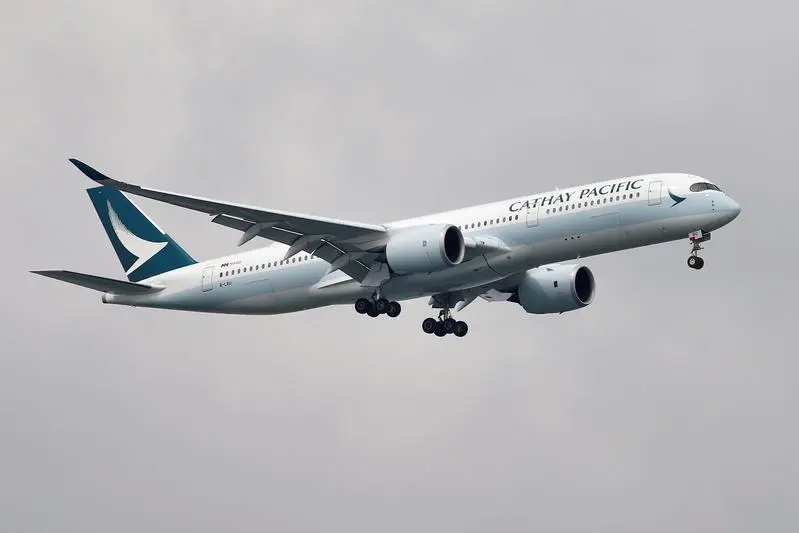PHOTO
Cathay Pacific Airways Ltd faces unprecedented staffing and training shortages that will keep airfares high and impede Hong Kong's return to its role of global aviation hub, a pilots' union said on Thursday.
A record number of resignations by the company's most experienced pilots leaves the airline unprepared to fully resume operations and failing to meet resurgent demand, the Hong Kong Aircrew Officers Association (HKAOA) said.
"Cathay Pacific ... is currently facing unprecedented staffing and training shortages," it said in a statement that forecast a rise in airfares amid a situation of low supply and strong demand.
Cathay, which has said it plans to hire 4,000 more staff over the next 18 to 24 months as travel rebounds, did not immediately respond to a request for comment on Thursday.
Last month, the airline said it expected to reach a third of pre-pandemic passenger capacity by year-end, exceeding its previous estimate of a quarter, after crew quarantine rules were eased.
In contrast, rival Singapore Airlines Ltd expects to reach 81% of its 2019 capacity levels by then.
Cathay has said adding capacity was a gradual process as it called for a substantial amount of crew training and reactivation of stored aircraft.
Along with its subsidiaries, the company had 20,800 employees globally by June 30, down from 34,200 at the end of 2019, after cutting thousands of roles during the pandemic.
At a webinar on Wednesday, John Grant, chief analyst at travel data firm OAG, said Hong Kong was likely to eventually restore its status as a global aviation hub, given its proximity to mainland China, but the process would not be quick.
Capacity at Hong Kong airport this week is 81% below 2019 levels, versus a decline of 38% in Singapore and a fall of 22% in Sydney, OAG data showed.
At Cathay, pilot attrition has been higher than normal after more than two years of onerous quarantine norms, combined with permanent pay cuts of as much as 58%.
Until the global financial hub relaxed COVID-19 curbs on Tuesday, Cathay crew on layovers overseas had to keep to their hotel rooms.
They must still wear masks on layovers, except while eating and drinking, and must avoid mass gatherings or crowded places, such as bars. (Reporting by Jamie Freed in Sydney; Editing by Tom Hogue and Clarence Fernandez)





















